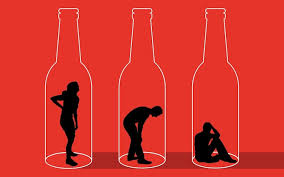The Impact of Alcohol on Health and Society
Alcohol, a widely consumed beverage across the globe, plays a significant role in social gatherings, celebrations, and everyday life. However, the effects of alcohol extend beyond its role as a social lubricant, raising important concerns about health and societal well-being.
Health Effects of Alcohol Consumption
While moderate alcohol consumption may have certain health benefits, excessive drinking can lead to a range of negative health outcomes. Chronic alcohol abuse is associated with liver disease, cardiovascular issues, neurological disorders, and an increased risk of certain cancers. Additionally, alcohol misuse can contribute to mental health issues such as depression and anxiety.
Social Implications of Alcohol Use
Alcohol misuse not only affects individual health but also has far-reaching consequences for society as a whole. Excessive drinking is linked to an increased risk of accidents, violence, and crime. It can strain relationships, disrupt families, and place a burden on healthcare systems and law enforcement agencies.
Addressing Alcohol-related Issues
Efforts to address alcohol-related problems include public health campaigns promoting responsible drinking habits, stricter regulations on alcohol sales and advertising, and support services for individuals struggling with alcohol addiction. Education about the risks associated with excessive alcohol consumption is crucial in preventing alcohol-related harm.
The Future of Alcohol Consumption
As our understanding of the impact of alcohol evolves, there is growing awareness of the need for balanced consumption and informed decision-making regarding alcohol use. By promoting a culture of moderation and responsible drinking practices, we can strive to minimize the negative effects of alcohol on both individuals and society.
Five Essential Tips for Responsible Alcohol Consumption and Maintaining Well-being
- Limit alcohol intake to moderate levels as excessive drinking can have negative health effects.
- Stay hydrated by drinking water between alcoholic beverages to help prevent dehydration.
- Avoid driving or operating machinery after consuming alcohol to ensure safety.
- Know your limits and be aware of how alcohol affects your body and behavior.
- Seek help if you or someone you know is struggling with alcohol dependence or addiction.
Limit alcohol intake to moderate levels as excessive drinking can have negative health effects.
Limiting alcohol intake to moderate levels is crucial for maintaining good health, as excessive drinking can lead to a variety of negative health effects. By consuming alcohol in moderation, individuals can reduce their risk of developing liver disease, cardiovascular issues, neurological disorders, and certain types of cancer. Additionally, practicing responsible drinking habits can help prevent mental health issues such as depression and anxiety. It is important to be mindful of how much alcohol one consumes to safeguard both physical and mental well-being.
Stay hydrated by drinking water between alcoholic beverages to help prevent dehydration.
Staying hydrated is crucial when consuming alcohol. To prevent dehydration and minimize the effects of alcohol on the body, it’s essential to drink water between alcoholic beverages. Hydrating with water not only helps maintain your body’s fluid balance but also aids in reducing the risk of a hangover the next day. By alternating between alcohol and water, you can enjoy your drinks responsibly while prioritizing your well-being.
Avoid driving or operating machinery after consuming alcohol to ensure safety.
It is crucial to prioritize safety by avoiding driving or operating machinery after consuming alcohol. Alcohol impairs judgment, coordination, and reaction times, increasing the risk of accidents and harm to oneself and others. By refraining from engaging in activities that require focus and quick reflexes while under the influence of alcohol, individuals can protect themselves and those around them, promoting a safer environment for all.
Know your limits and be aware of how alcohol affects your body and behavior.
It is crucial to know your limits and understand how alcohol impacts your body and behavior. By being aware of how alcohol affects you personally, you can make informed decisions about when and how much to drink. Recognizing the signs of intoxication and knowing when to stop can help prevent excessive drinking and its negative consequences. Understanding your tolerance levels and setting boundaries for yourself ensures a safer and more enjoyable drinking experience for both you and those around you.
Seek help if you or someone you know is struggling with alcohol dependence or addiction.
It is crucial to seek help if you or someone you know is struggling with alcohol dependence or addiction. Recognizing the signs of alcohol misuse and taking proactive steps to address the issue can make a significant difference in improving overall well-being and quality of life. Seeking support from healthcare professionals, counselors, or support groups can provide valuable resources and guidance in overcoming alcohol-related challenges. Remember, you are not alone, and there are resources available to help navigate the journey towards recovery.

